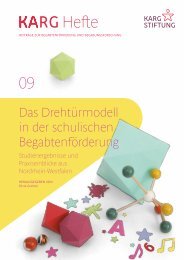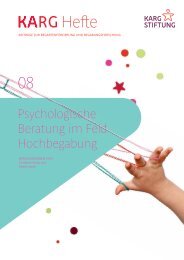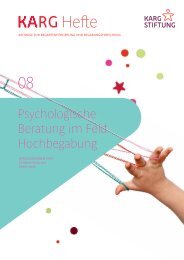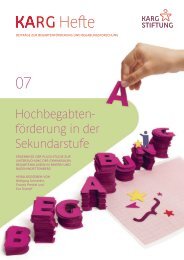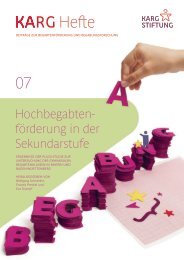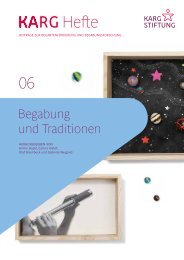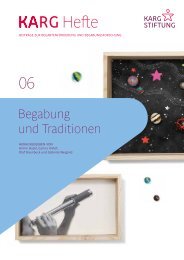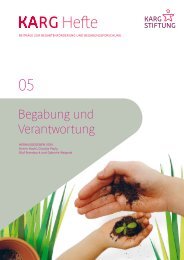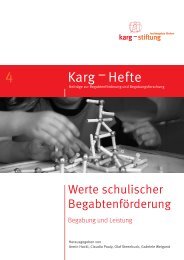FAQS: Frequently asked questions about giftedness
The Karg Foundation receives a lot of questions on the subject of giftedness—FAQs (Frequently Asked Questions)—far more often indeed than it did ten years ago. And this is a good thing! Many people involved in the educational processes of children have come to realize that giftedness can also be a fundamental personality trait of children and adolescents. The Karg Foundation wants to answer the questions you may have not only as educational and psychological professionals in educational institutions or working as educational providers, policy makers, or in training and further education institutes, but as parents and gifted people also: What is giftedness? How can it be identified? Who can provide advise for gifted children and their families? How can they be supported in the best possible way?
The Karg Foundation receives a lot of questions on the subject of giftedness—FAQs (Frequently Asked Questions)—far more often indeed than it did ten years ago. And this is a good thing! Many people involved in the educational processes of children have come to realize that giftedness can also be a fundamental personality trait of children and adolescents.
The Karg Foundation wants to answer the questions you may have not only as educational and psychological professionals in educational institutions or working as educational providers, policy makers, or in training and further education institutes, but as parents and gifted people also: What is giftedness? How can it be identified? Who can provide advise for gifted children and their families? How can they be supported in the best possible way?
You also want an ePaper? Increase the reach of your titles
YUMPU automatically turns print PDFs into web optimized ePapers that Google loves.
Who should perform testing<br />
and how does reliable intelligence<br />
assessment work?<br />
Regardless of how good a test may be, the key to<br />
successful assessment lies in the appropriate use of the<br />
test and the correct interpretation of the results. Comprehensive<br />
skills in psychodiagnostics and also fundamental<br />
knowledge of theory and research findings are essential.<br />
Consequently, tests should only be administered by psychologists<br />
with a professional degree (German “Diplom”<br />
degree or Master’s degree) or by professionally qualified<br />
special education instructors. These specialists should also<br />
have experience in working with children and adolescents<br />
as well as experience in testing exceptionally intelligent<br />
children.<br />
Ideally, two intelligence tests should be administered<br />
on different days. Testing is based on the premise that the<br />
child is motivated and able to complete the test tasks to<br />
the best of his or her ability. In addition, a preliminary<br />
interview focusing on the child’s development and the<br />
specific <strong>questions</strong> to be addressed in the diagnostic process<br />
should take place to allow the selection of the appropriate<br />
test procedures.<br />
Additional data should be collected from the parents<br />
and also from the school when possible to gain a more<br />
comprehensive impression of the child.<br />
Together with IQ scores or other norm values, feedback<br />
of results should also include “confidence intervals.”<br />
After all, a degree of inaccuracy must be assumed for all<br />
test instruments—and this is also true for intelligence<br />
tests. However, this measurement inaccuracy can be<br />
clearly estimated for intelligence tests, and this is accounted<br />
for by the confidence intervals. The actual IQ of<br />
the tested child is contained, with a specific certainty of<br />
typically 95 or 99 percent, within these intervals. For example,<br />
for a measured IQ of 135, the confidence interval<br />
would range from IQ 128 to IQ 142.<br />
For an overview of the leading intelligence test instruments<br />
and a discussion of their use in <strong>giftedness</strong> assessment,<br />
please visit the Karg Foundation’s <strong>giftedness</strong> resource<br />
portal (only available in German language):<br />
42 43






